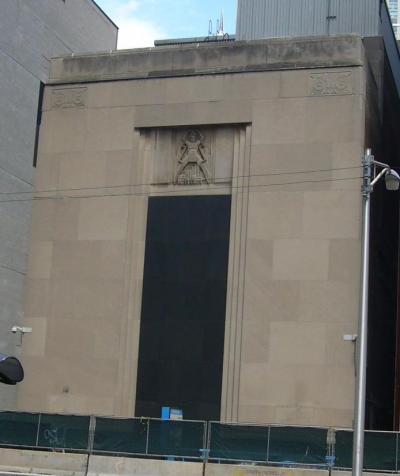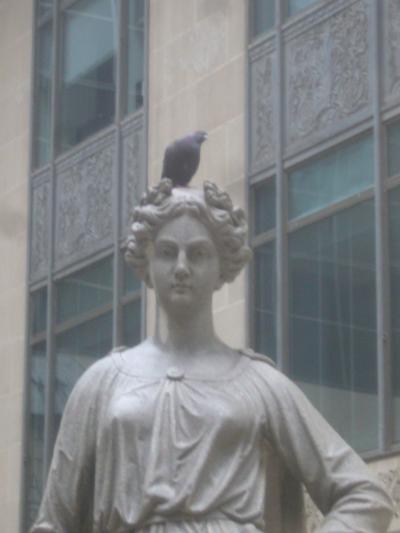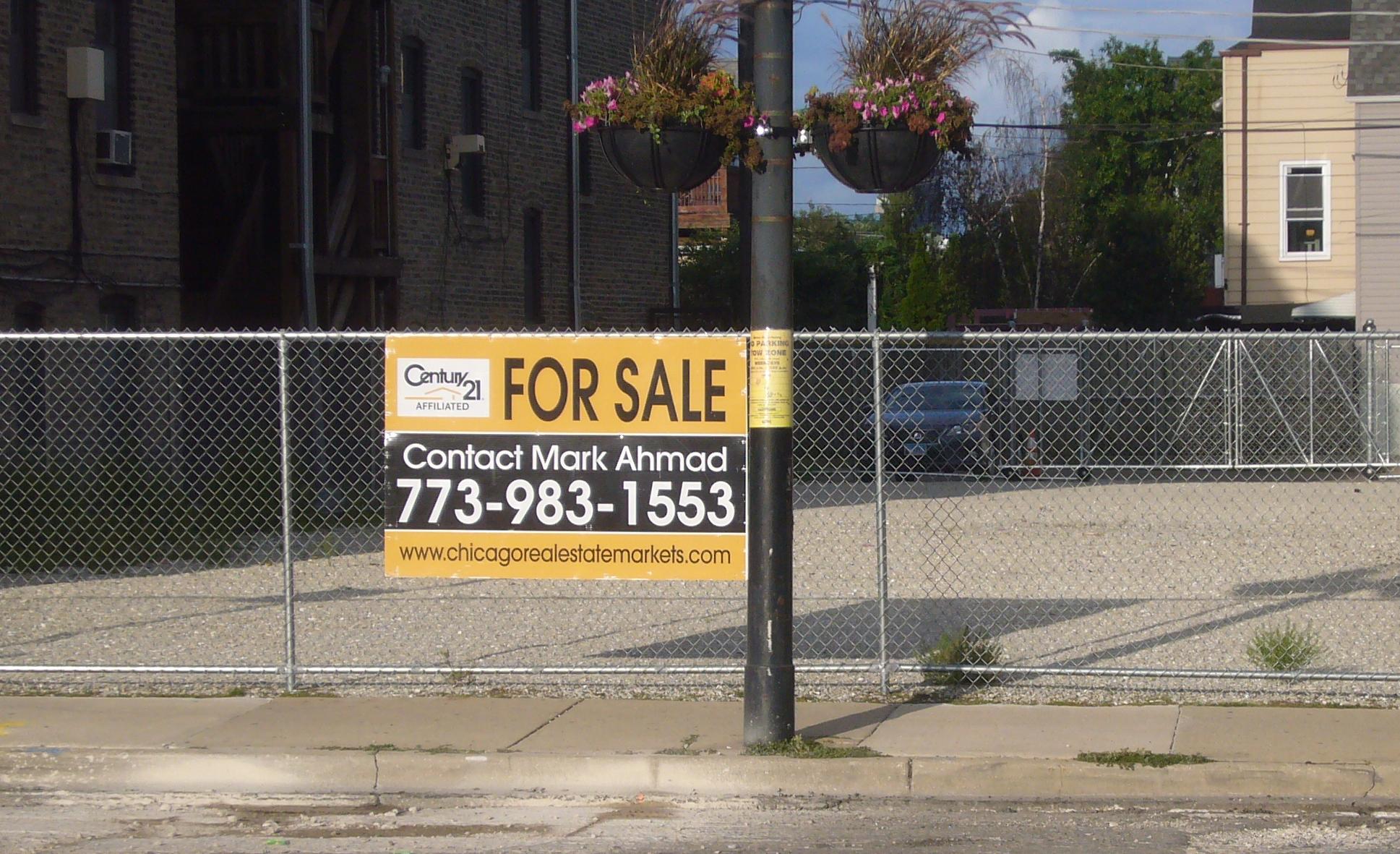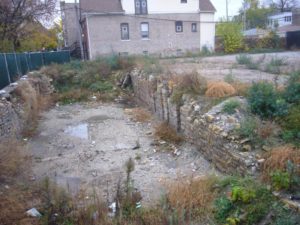
Originating as a field trip for students completing our Progress & Poverty course, this stroll thru downtown Chicago examines some of the ways that average people, and the community as a whole, are deprived of their just earnings. Among other things we’ll see who benefits from the expensive infrastructure and “economic development” projects, how Thomas Jefferson wanted Chicago to fund its public schools, what happens when a well-located building burns down, and how land speculators get productive workers to pay their taxes. Expect to walk about 2 km, maybe we’ll stop for snacks (individual settlement) along the way.
A $10 donation is requested from those who are not recent or current HGS students or donors, but nobody will be excluded due to lack of funds. You can make your donation by credit card here, or bring cash or a check.

Originating as a field trip for students completing our Progress & Poverty course, this stroll thru downtown Chicago examines some of the ways that average people, and the community as a whole, are deprived of their just earnings. Among other things we’ll see who benefits from the expensive infrastructure and “economic development” projects, how Thomas Jefferson wanted Chicago to fund its public schools, what happens when a well-located building burns down, and how land speculators get their taxes paid by productive workers. Hardcopy sourced notes will be provided. Expect to walk about 2 km; maybe we’ll stop for snacks (individual settlement) along the way.
A $10 donation is requested from those who are not recent or current HGS students or donors, but nobody will be excluded due to lack of funds. If you have a paypal account, you can make your donation by credit card using the link below, or better yet bring cash or a check.
This session introduces Progress & Poverty, including an overview of what we cover in the course. Even if you don’t plan to take the full course, you can expect this introductory session to help you gain a new and useful perspective on today’s problems of wealth concentration, poverty, and lack of opportunity.
America in the 1870s faced increasing poverty, rising unemployment, rule by an elite and their corporations– many of the same problems we’re experiencing today. Henry George described the cause of these problems and proposed a remedy which is even more applicable today than it was in his time. His book Progress & Poverty, perhaps the best-selling nonfiction book of the 19th century, presented his analysis and solution.
In this “classic” version of the course, students are encouraged to read the original 1879 text, and/or modern summaries and supplements, and to evaluate what George says against their own experience and understanding. You’ll gain a new understanding of how the economy works, which public policies promote liberty and prosperity, and which don’t.
Class meets every Tuesday, beginning 6:15PM on January 19, ending March 22. More information about the course is here and here. Pre-registration is helpful but not required.
Recent books by Scott Baker and Tom Tresser (ed) assert that America is not Broke and Chicago is not Broke. They’re right, of course, and neither is Illinois. Using principles outlined by Henry George, this presentation will show how the community could choose to collect the value it creates, funding its needs without discouraging productive work.
Recent books by Scott Baker and Tom Tresser (ed) assert that America is not Broke and Chicago is not Broke. They’re right, of course, and neither is Illinois. Using principles outlined by Henry George, this presentation will show how the community could choose to collect the value it creates, funding its needs without discouraging productive work, and without burdening the earning power of the most needy.
This is an update of material originally presented in May of this year. While subsequent developments have transferred some of the economic distress from governments to citizens, there is no indication that the politicians or other interest groups involved admit any understanding of the fundamental economic principles described here.

Recent books by Scott Baker and Tom Tresser (ed) assert that America is not Broke and Chicago is not Broke. They’re right, of course, and neither is Illinois. Using principles outlined by Henry George, this presentation will show how the community fails to collect its legitimate earnings, instead placing barriers against productive work and making it unnecessarily difficult for working people to earn a living.
This is an update of material originally presented in May of this year. While subsequent developments have transferred some of the economic distress from governments to citizens, there is no indication that the politicians or other interest groups involved admit any understanding of the fundamental economic principles described here. Without this understanding, even honest government couldn’t put Illinois on a path to prosperity and freedom.
This Henry George School presentation is sponsored by the Chicago Ethical Humanist Circle, is free and open to the public. The Library is three blocks from the Western Brown Line CTA station.

Cook County isn’t broke either. Neither is Chicago.
In this session you will learn about the legitimate earnings that our communities generate every day, and how collecting these earnings would allow removal of barriers to productive work which make it unnecessarily difficult for working people to earn a living.
There’s plenty of waste and fraud throughout government, but that’s not the focus here. Even an honest and efficient government requires revenue, and the source of that revenue determines whether we can have prosperity and freedom, or — something else.
PREREGISTRATION MANDATORY. This program is free, but due to building policies you must pre-register by email or by phoning us at 312 450-2906.

Cook County isn’t broke either. Neither is Chicago.
In this session you will learn about the legitimate earnings that our communities generate every day, and how collecting these earnings would allow removal of barriers to productive work which make it unnecessarily difficult for working people to earn a living.
There’s plenty of waste and fraud throughout government, but that’s not the focus here. Even an honest and efficient government requires revenue, and the source of that revenue determines whether we can have prosperity and freedom, or — something else.
PREREGISTRATION MANDATORY. This program is free, but due to building policies you must pre-register by email or by phoning us at 312 450-2906.

Decades before Wealth of Nations, Adam Smith wrote what he seems to have considered a superior work, Theory of Moral Sentiments. He wrote:
How selfish soever man may be supposed, there are evidently some principles in his nature, which interest him in the fortune of others, and render their happiness necessary to him, though he derives nothing from it except the pleasure of seeing it.
Wikipedia asserts:
Smith critically examines the moral thinking of his time, and suggests that conscience arises from dynamic and interactive social relationships through which people seek “mutual sympathy of sentiments.”[74] His goal in writing the work was to explain the source of mankind’s ability to form moral judgement, given that people begin life with no moral sentiments at all. Smith proposes a theory of sympathy, in which the act of observing others and seeing the judgements they form of both others and oneself makes people aware of themselves and how others perceive their behaviour.
The Theory of Moral Sentiments has been printed in numerous editions, and is also available free on line. Smith revised the book throughout his lifetime; it’s best to avoid the first edition, and choose one published after his death in 1790.
In this session we’ll discuss parts 1-3 of the book, taking up parts 4-7 on November 20,

